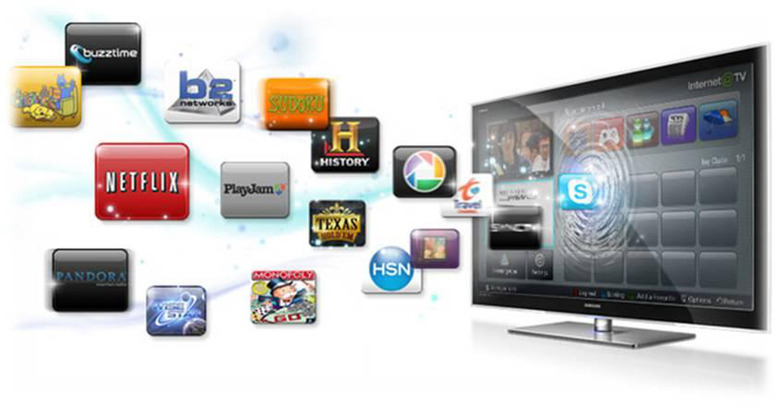Man Who Owns A Smart TV Says He's 'Afraid' Of Using It After Reading Its Privacy Policy
Just like with other electronic devices that used to be "dumb," TVs have become increasingly smart lately, but that doesn't mean that's necessarily a good thing, especially when it comes to user privacy. At least that's what Brennan Center's Michael Price seems to think after he replaced his older TV that could offer access just to TV programs with a smart TV model that also delivers "streaming multimedia content, games, apps, social media and Internet browsing."
FROM EARLIER: Agree to share stuff with LG or it'll make your Smart TV 'stupid'
"The only problem is that I'm now afraid to use it. You would be too — if you read through the 46-page privacy policy," Price wrote. "The amount of data this thing collects is staggering. It logs where, when, how, and for how long you use the TV. It sets tracking cookies and beacons designed to detect 'when you have viewed particular content or a particular email message.' It records 'the apps you use, the websites you visit, and how you interact with content.' It ignores 'do-not-track' requests as a considered matter of policy."
On the other hand, this isn't the first time a smart TV has been found capable of tracking your activities for advertising purposes, so buyers should always try to go through the privacy policies they agree to when using such a device, and try to limit tracking if and when possible.
Furthermore, the device has a built-in camera with facial recognition and a microphone with voice recognition features, both tools that hackers or spy agencies could use to spy on unsuspecting buyers, Price says.
In addition to being used for ad purposes, these smart devices might also be hacked only as long as they're connected to the Internet. Owners could decide to remove Internet access from their smart TVs to protect themselves against tracking and spying, but they'd lose most of their smart features in the process.
"I do not doubt that this data is important to providing customized content and convenience, but it is also incredibly personal, constitutionally protected information that should not be for sale to advertisers and should require a warrant for law enforcement to access," Price said, further quoting former CIA chief General David Petraeus who once said the agency will be able to "spy on you through your dishwasher."
"Indeed, as the 'Internet of Things' matures, household appliances and physical objects will become more networked," Price said. "Your ceiling lights, thermostat, and washing machine — even your socks — may be wired to interact online. The FBI will not have to bug your living room; you will do it yourself."
The full article is available at the source link.
